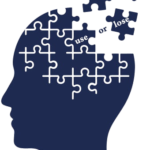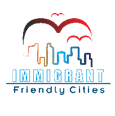
Developing Farmers’ Digital Skills
December 2, 2024
USE OR LOSE
December 2, 2024Immigrant Friendly Cities
Project Summary
The digital age offers local governments unprecedented possibilities to engage with residents in novel ways. Cities across the globe are using digital tools, such as web portals and applications (apps), to improve access to public services, enhance responsiveness, better understand the needs of the populations they serve, and provide platforms for deeper civic engagement.
Research has shown that disadvantaged groups, including immigrants and minorities, are high users of smartphones and social media, and could theoretically be reached through these tools. Newly arrived immigrants are some of the most vulnerable in society and are often in need of support settling in and connecting to information about local services and jobs. However, these groups are often thought to be digitally, as well as socially excluded, and the move by governments to online platforms could exacerbate existing barriers to accessing public services. Furthermore, these groups may lack the necessary digital skills and host-country language ability to take full advantage of digital government services.
Based on interviews with city officials, local nongovernmental organizations (NGOs), academics, business practitioners, and experts on immigration and digital inclusion, the article analyzes city efforts to capitalize on the new opportunities offered by digital technology to reach immigrant communities, and explores the efforts of municipal governments to ensure that no one is left out of these technological shifts.Cities serve as epicenters for immigration and hubs of innovation in digital governance; some have developed digital-inclusion strategies aimed at reducing the digital divide and thus helping integration efforts.
In this way,our project aims to create permanent information services for immigrants by developing web platforms, mobile Apps and online trainings for immigrant advisors. The need to develop immigrant information services exists because in many cases people have a lack of information when moving into a new country or a new city about how to proceed with residence permits, social security issues, jobsearch etc. and even about what services are available. For this purpose the project will produce a web platfarm as a OER for migrants, refugees and asylum seekers in 6 languages and a mobile APP for refugees.So there will be information services in the nearby area which genuinely work and are organized in co-operation between different public authorities.Adult education trainers will also improve their competences by offering new ways of learning, as a result of the cooperation and exchange of experiences at international level.As education is considered indispensable to integration there is an increasing need to prepare all adult education providers ,immigrant advisors and officers in public authorities in the most affected EU countries to initiate relevant programmes with the newly arrived migrants and refugees. Additionally, the project aimed at developing and growing the multicultural skills of these staff by organizing MOOC(Massive open online course) on the web platform.The objective of the Partnership is to propose and implement ways for better managing the integration of migrants and refugees considering in particular cities’ challenges and needs.Increasing the supply of and encouraging individuals’ engagement in adult learning as a means of strengthening social inclusion and active participation in the community and society, and improving access to adult learning for migrants, Roma and disadvantaged groups, as well as learning provision for refugees and people seeking asylum, including host country-language learning, where appropriate.Totally 450 refugees/newly arrived immigrants will join the surveys and workshops as a participants.And totally 80 staff will join the MOOC to develop their cskills and competences in refugee integration.
By the end of the project,public authorities will create a web based platforms,APP and they will train their staff.So the refugees/immigrants should have public guidance services by using digital tools.A learning model will be developed with digital tools and fostering respect and understanding for diversity, intercultural competencies and values
Refugees and newly arrived migrants will communicate with others beyond one’s own group, to move about independently,or thus helping them to adapt to a place of arrival easily, efficiently and effectively.
Newly settled migrants and refugees are equipped with functional and practical language skills to carry out simple tasks required of them during their first few months in-country.
Website:
Coordinator:
- Aydin Il Goc Idaresi Mudurlugu - TURKEY
Partners:
- ANAPTIXIAKO KENTRO THESSALIAS - GREECE
- Sosyal Etki ve Yenilikci Egitim Dernegi - TURKEY
- PRO IFALL AB - SWEDEN
- wisamar Bildungsgesellschaft gemeinnuetzige GmbH - GERMANY
- Fønix AS - NORWAY
- CENTRO INTERNAZIONALE PER LA PROMOZIONE DELL'EDUCAZIONE E LO SVILUPPO ASSOCIAZIONE - ITALY
- Aydin Valiligi - TURKEY





